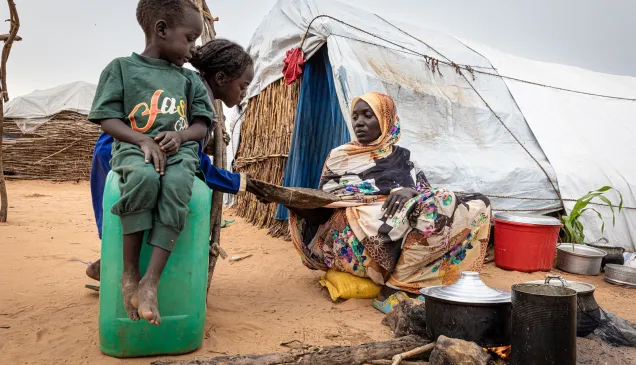ICRC collaborates with artists in urgent call for equitable access to COVID-19 vaccine
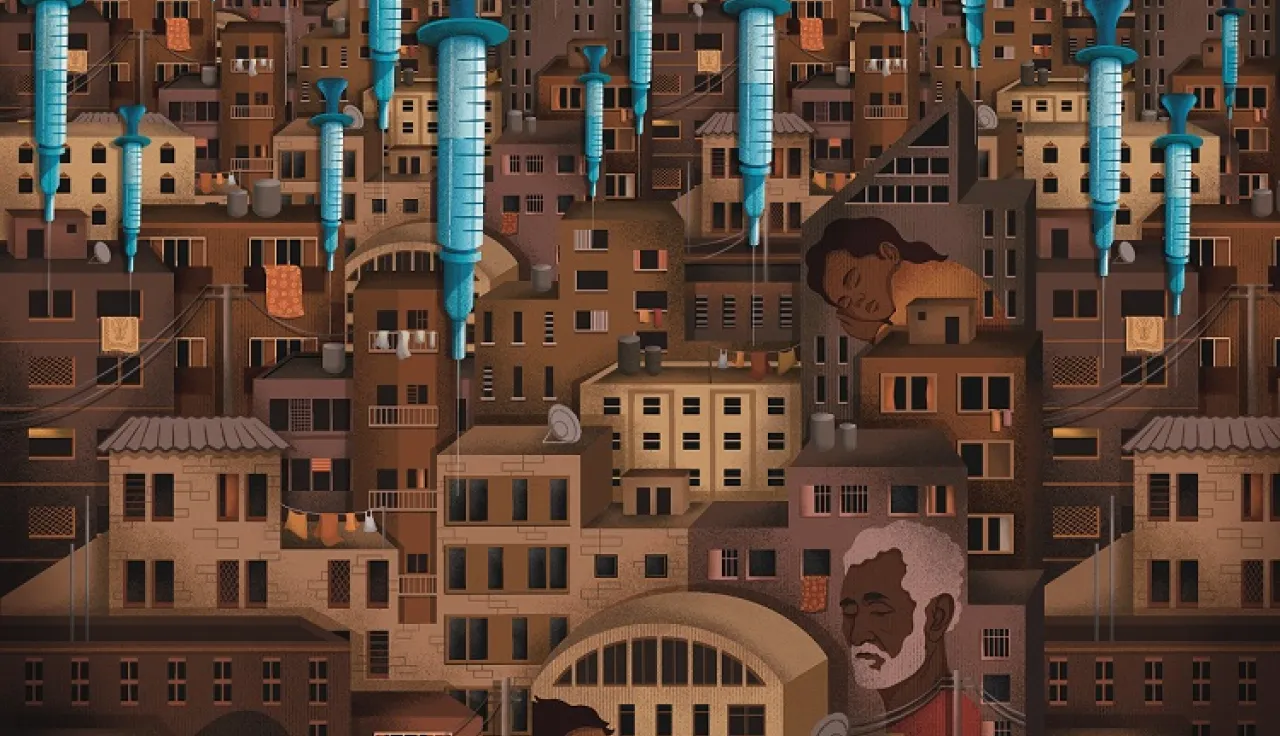
With a new COVID-19 variant sweeping the world, the International Committee of the Red Cross Asia Pacific has collaborated with artists in the region to call for equitable access to vaccines.
Artists across the region — from Thailand to Pakistan to the Philippines, from Malaysia and all the way to Australia — have not only had their lives upended by the pandemic, but they've also felt the impact and importance of vaccinations in their respective communities.
"I can't imagine people who are already in the middle of a conflict and now they have to deal with COVID at the same time," said Malaysian visual designer and illustrator Delia Razak. "The virus has done so much damage and it continues to do so. The marginalized population is the most affected."
"My life faced many difficult challenges during COVID-19. It's affected my mental health greatly," said Thai artist Chutikarn Navalong. "The Coronavirus doesn't discriminate. A positive diagnosis can happen to anyone, anytime, any place. That's why vaccines should be accessible to everyone."
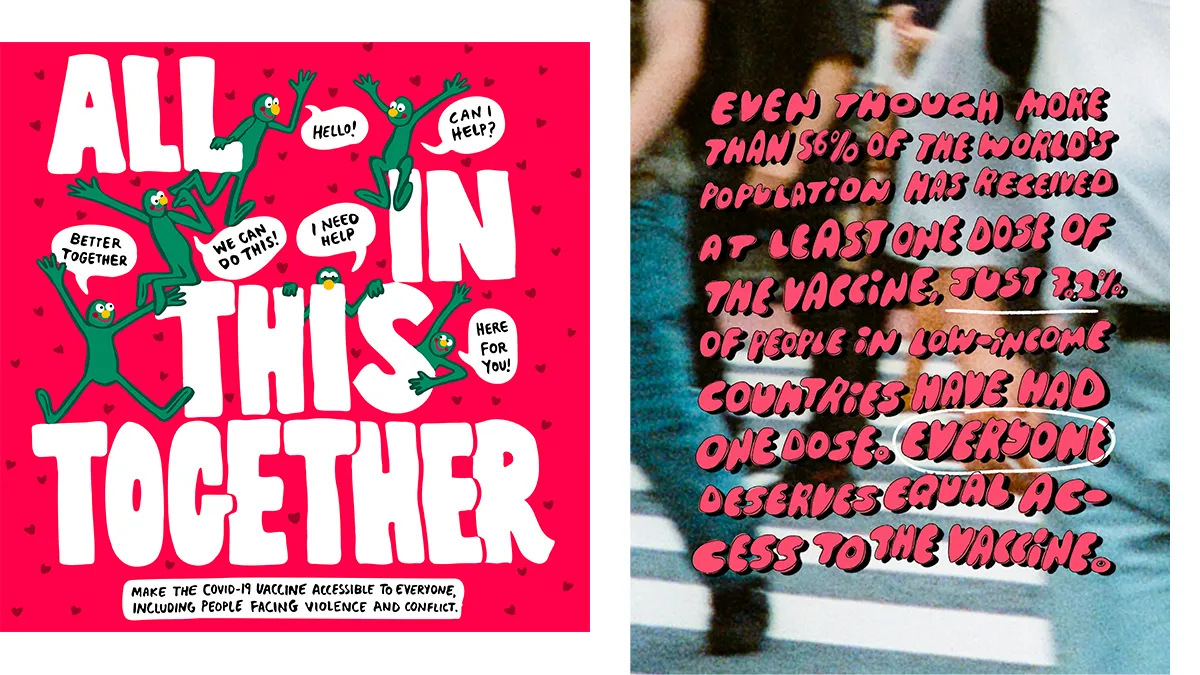
Viruses like COVID-19 naturally change and mutate over time — and spread indiscriminately. It doesn't recognize borders or nationalities, striking anywhere and infecting anyone unprotected and unvaccinated.
A pandemic of this scale requires a global response. To overcome this crisis, we need coordinated effort from countries across the world. No one is truly safe from the virus until everybody is safe.
Together with the artists, the ICRC calls on governments and different stakeholders across the world to ensure unconditional access to vaccines. No political, financial, legal or logistical facet should hamper efforts to reach countries in conflict and populations in the most fragile of settings.
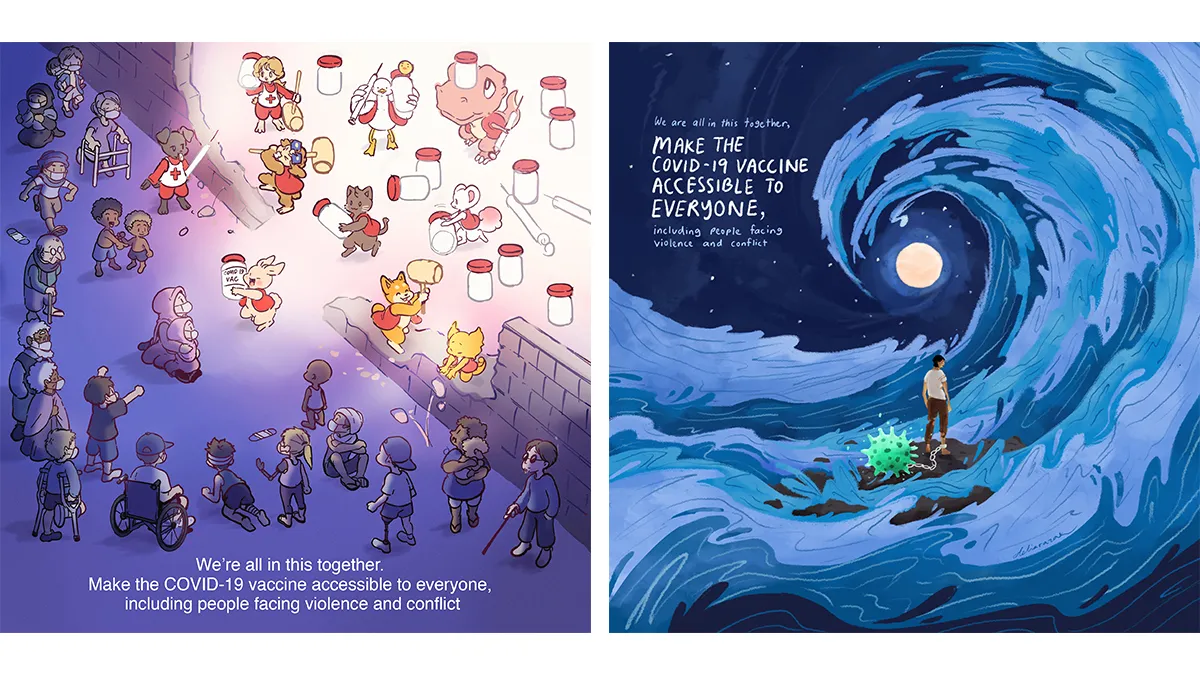
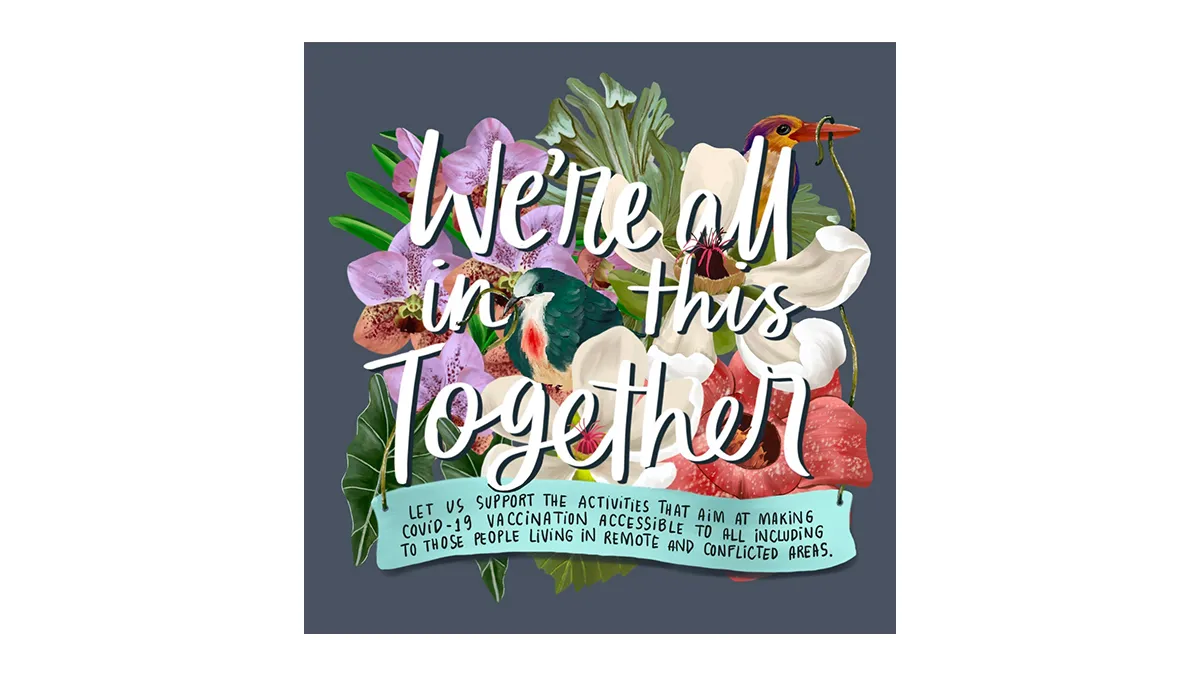
While more than 56 percent of the world's population has already received at least one dose of the vaccine, that percentage plummets to just 7.2 percent in low-income nations.*
Countries facing humanitarian crises need 700 million more doses just to meet the World Health Organization's goal of vaccinating at least 40 percent of their populations by the end of 2021.
Five of the poorest countries in the world (Burundi, Chad, the Democratic Republic of the Congo, South Sudan, and Yemen) have vaccinated less than 1 percent of their population.
Meanwhile, wealthier nations have begun administering booster shots to their citizens, as high- and upper-middle-income countries have simultaneously started vaccinating children 5 years old and above.
But therein lies the problem: By the end of May 2021, 75% of COVID-19 vaccine doses administered in the world only benefited 10 countries. War-torn countries and those facing humanitarian crises have yet to vaccinate their population. According to WHO, it's not a question of supply, but of allocation.
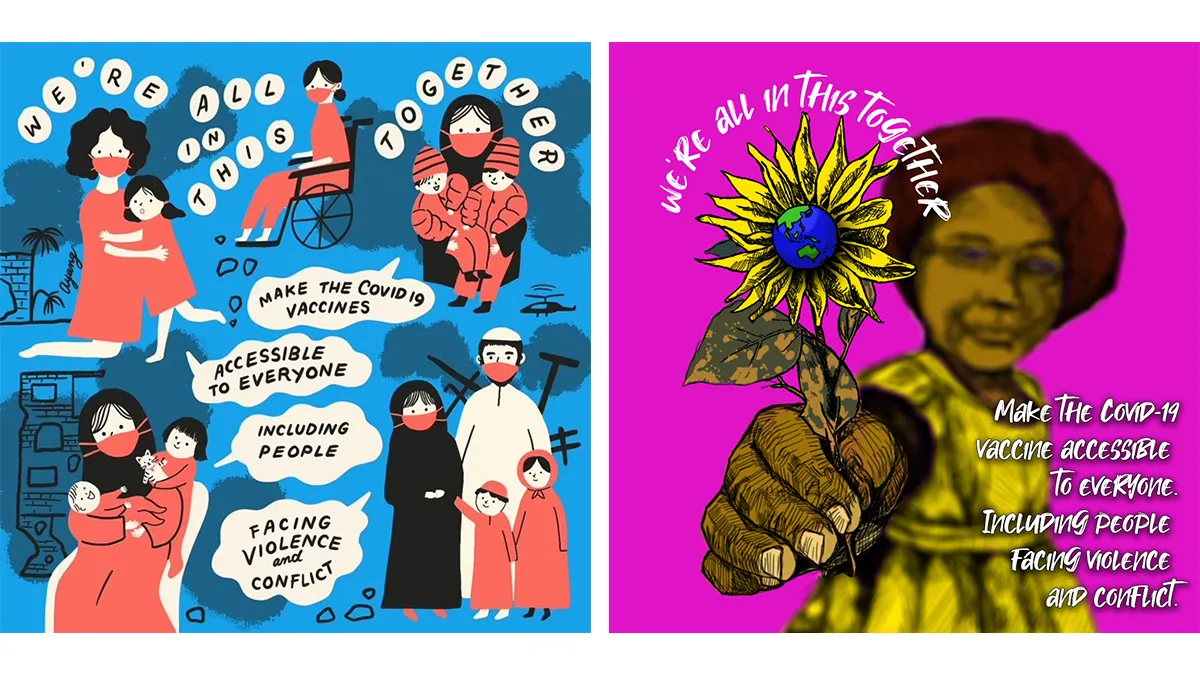
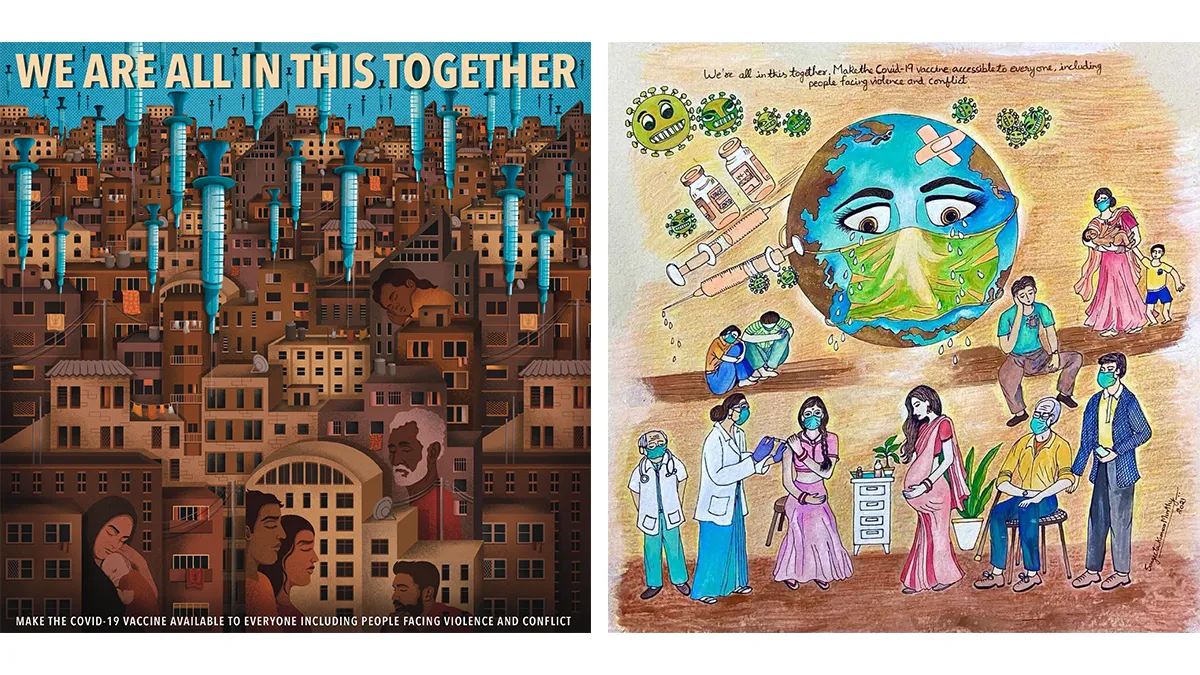
As the International Committee of the Red Cross and the Red Crescent Movement continue to work with partners to support COVID-19 vaccination programs, it calls on the rest of the world to stand in solidarity, and advocate the equitable access to vaccines, and help ensure a better vaccine distribution in places affected by conflict.
In Asia-Pacific, it has supported the governments of Indonesia, Malaysia, and Timor Leste with their vaccination rollout in several hard-to-reach areas by providing equipment, logistical, and financial aid. In Myanmar meanwhile, the ICRC has helped vaccinate some 17,590 people in the months of April and May.
The ICRC has provided financial and support to the Red Crescent Society of Bangladesh for their vaccination program, while in Pakistan, the ICRC has committed three months to support the Pakistan Red Crescent Society in its implementation of the COVID-19 mass vaccination campaign.

